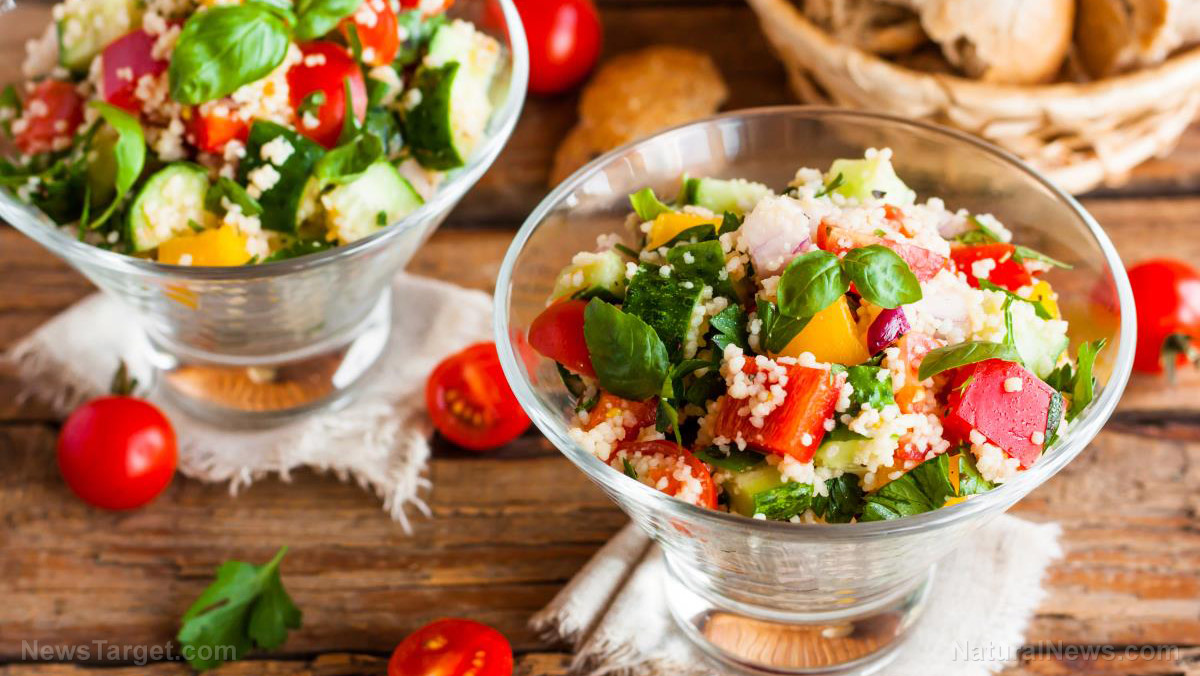Add these 8 nutrient-packed foods to your diet
08/06/2019 / By Evangelyn Rodriguez

According to the World Health Organization (WHO), good nutrition is the cornerstone of good health. Good nutrition entails an adequate, well-balanced diet complemented with regular physical activity. The major systems of the body all rely on good nutrition to function properly. Poor nutrition results in impaired immunity, physical and mental development, and productivity. To ensure that you get good nutrition, start by adding these nutrient-rich foods to your diet.
8 Foods that promote good nutrition
Nutrients are food components that provide nourishment to the body. There are two types of nutrients that people need: macronutrients, which should be consumed in large quantities, and micronutrients, which are needed in relatively small quantities.
Some macronutrients, like carbohydrates, fats, and proteins, are converted by the body into energy, while others, like water and dietary fiber, find their significance in aiding bodily functions.
Micronutrients, like vitamins and minerals, are absorbed by the body and used in various biochemical processes. Micronutrients also help the body fight or prevent diseases.
Below are eight of the most nutrient-rich foods that you should eat to get proper nutrition.
Berries
Berries are some of the most nutritious fruits on the planet. They make great, tasty snacks because they provide plenty of fiber and micronutrients, such as vitamins C and K, and manganese.
Berries also contain polyphenolic antioxidants — the highest of all foods and drinks — that help prevent chronic diseases.
The most well-known and well-studied antioxidants in berries are called anthocyanins. According to studies, anthocyanins can help fight heart diseases, diabetes, inflammation, and cancer.

Dandelion greens
Leafy green vegetables like dandelion greens are low in calories but rich in vitamins, minerals, and fiber. Dietary fiber promotes good health and healthy digestion.
One cup of dandelion greens provides copious amounts of vitamins A, C, E, and K. They also contain a variety of minerals, including calcium, iron, magnesium, and potassium.
Dandelion greens go well with other vegetables and should be boiled to lessen their bitter taste.
Kale
Kale is another example of a highly nutritious leafy green. Most of the nutrients it contains are similar to those found in dandelion greens. For instance, you can get large amounts of vitamin K, which supports bone and tissue health, from kale.
Kale is also rich in dietary fiber, proteins, and potent antioxidants like beta carotene, which is important for eye health.
You can add kale to your salad or smoothie or eat it by itself after sauteing. If the taste of kale doesn’t suit your palate, try the more tender, milder-tasting baby kale.
Legumes
Many superfoods belong to a food group known as pulses or legumes. These foods include high-fiber protein sources like beans, lentils, peanuts, peas, and soybeans.
Legumes are prolific sources of complex carbohydrates. Unlike simple carbohydrates, these macronutrients provide energy without raising blood sugar levels. Because of this, legumes are highly recommended for managing diabetes.
Some micronutrients present in legumes include B-complex vitamins, calcium, iron, and magnesium. Legumes like beans contain anti-nutrients, which reduce the body’s ability to absorb nutrients. To circumvent this, soak and pressure-cook them before eating.
Nuts
Nuts are the best sources of monounsaturated fats. These fats are considered healthy and contribute to cell growth and the protection of vital organs.
Nuts contain high amounts of protein and other nutrients, such as fiber, vitamins E, K, B9 (folate), and B1 (thiamine), and minerals like potassium and magnesium. They also contain antioxidants, carotenoids, and beneficial plant sterols.
To get all these compounds, snack on unsalted almonds, pistachios, and walnuts, or eat nuts together with your veggies.
Quinoa
Quinoa is a whole grain native to South America. Like legumes, quinoa contains complex carbohydrates, which are healthy sources of fuel for the body.
Per 100 g of quinoa, you can get about 4.4 g of protein and 2.8 g of fiber. Quinoa also provides minerals like magnesium and phosphorus, and B-complex vitamins.
For a healthier diet, replace simple carbohydrate sources like rice or pasta with quinoa. You can cook quinoa on the stove or using a rice-cooker; quinoa cooks in about 15 minutes. (Related: Quinoa vs rice: Is one really healthier than the other?)
Salmon
Oily fish like salmon are the most abundant sources of omega-3 fatty acids. These fatty acids support many bodily functions and help reduce the risk of cardiovascular disease.
Salmon also contains huge amounts of protein. Wild Atlantic salmon can provide about 20 g of protein per 100 g serving. Protein is a source of energy for the body and is needed for tissue repair.
You can also get magnesium, potassium, selenium, vitamin B12, and vitamin D from eating salmon. Add some smoked salmon to your salad to boost its nutritional content and taste.
Sweet potato
Sweet potatoes contain a variety of nutrients, which include vitamins A, B6, and C, protein, potassium, dietary fiber, and complex carbohydrates. Vitamins A and C are known antioxidants, while vitamin B6 is essential to over 100 enzymes involved in protein metabolism.
Besides antioxidant vitamins, purple sweet potatoes also contain cyanidin, which can reduce inflammation especially in the digestive tract.
Sweet potatoes are best consumed with their skin on. To reduce the spike in blood sugar levels that sweet potatoes can cause, boil them instead of frying or baking.
It pays to invest in your health. Visit SuperfoodsNews.com for more health-promoting foods.
Sources include:
Submit a correction >>
Tagged Under:
#nutrition, anthocyanins, anti-inflammatory, antioxidants, berries, beta carotene, carbohydrates, clean food, cyanidin, dandelion greens, dietary fiber, energy sources, fruits, functional food, grocery cures, healthy fats, immune system, inflammation, kale, Leafy greens, legumes, minerals, Nourishment, nutrient-rich foods, nutrients, nuts, omega-3 fatty acids, organics, prevention, protein, Quinoa, salmon, sweet potato, Veggies, vitamins, well-balanced diet
This article may contain statements that reflect the opinion of the author





















